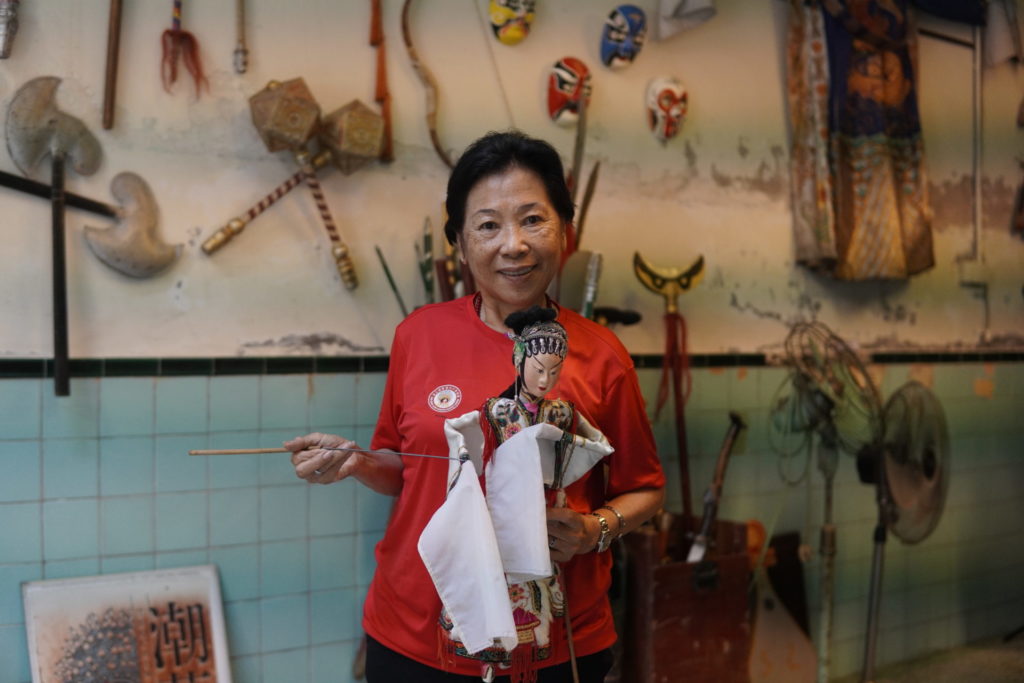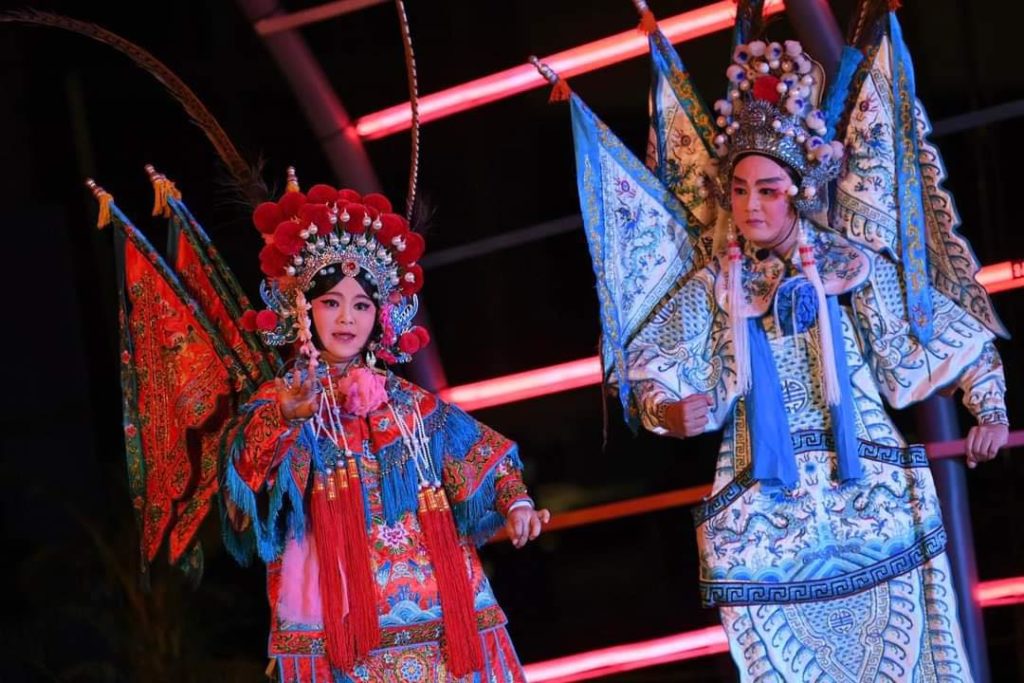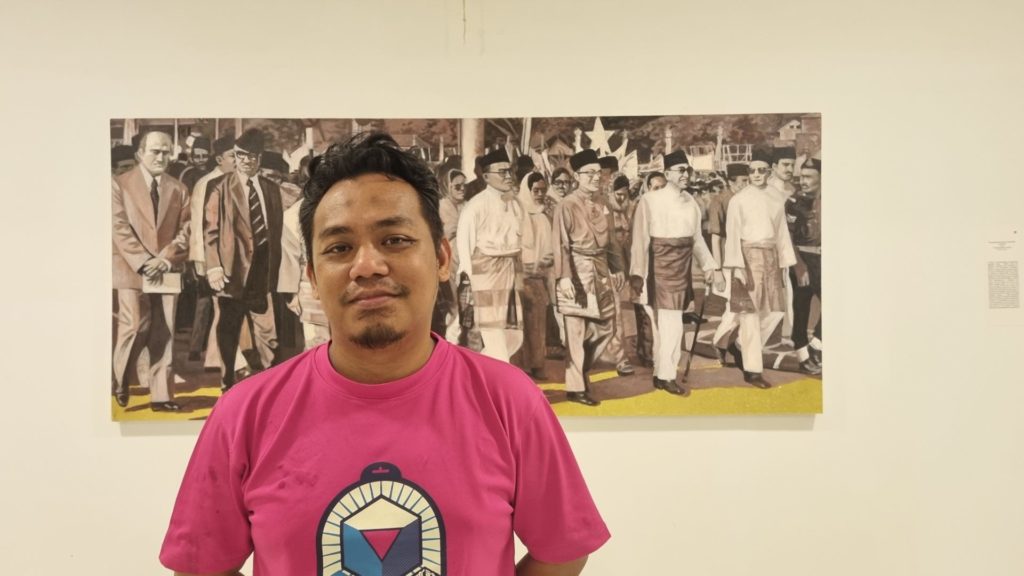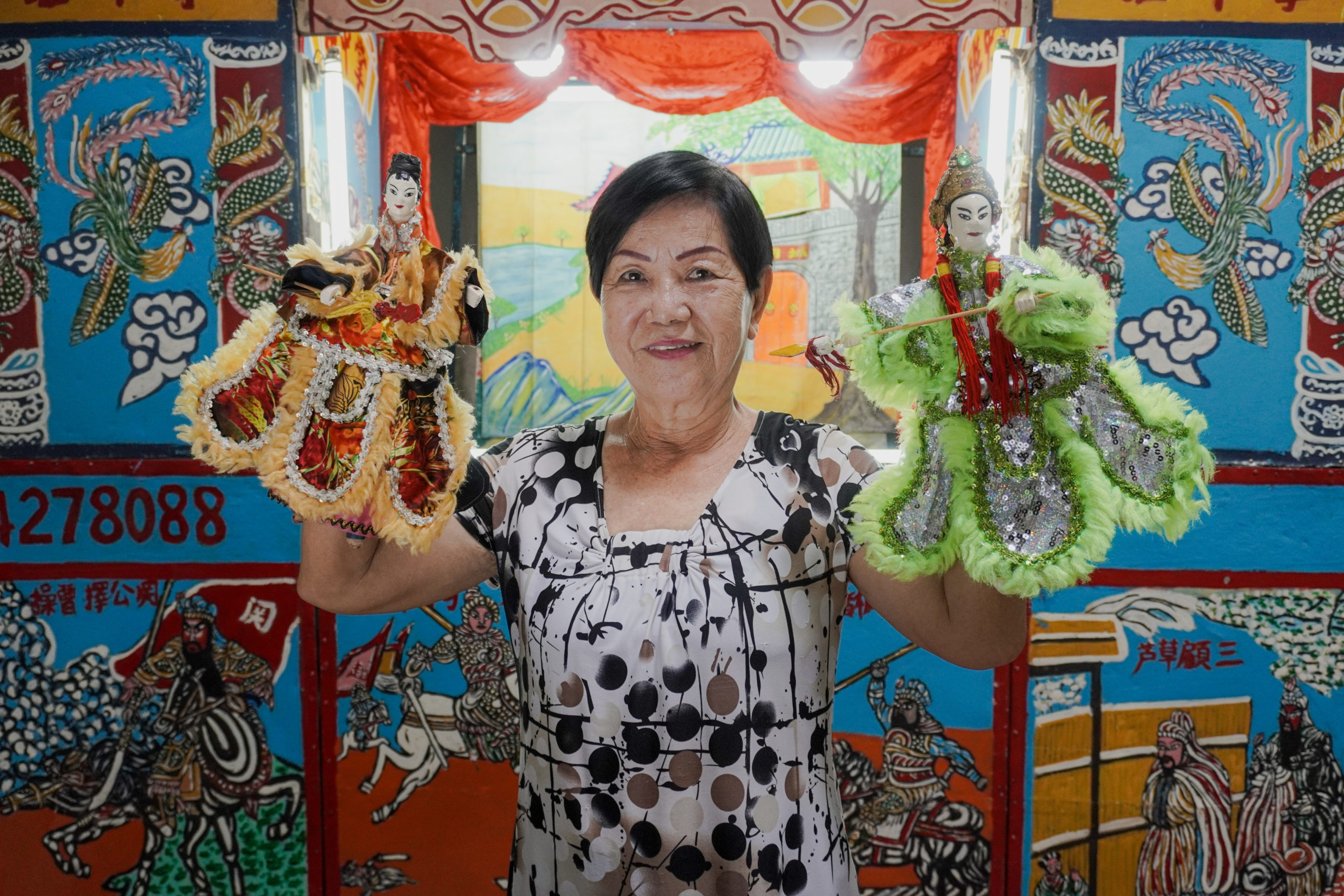
Ooi See Han is a lifelong practitioner of Potehi puppetry, a form of puppet opera originating from Fujian, China.
By CHIN JIAN WEI
72-year-old Ooi See Han is a third-generation descendant of the Potehi Puppetry troupe, based in Penang. She has been practising the art form for many years, as taught by her grandfather, who came from Southern China. Potehi is the Hokkien art of using cloth glove puppets in opera performances.
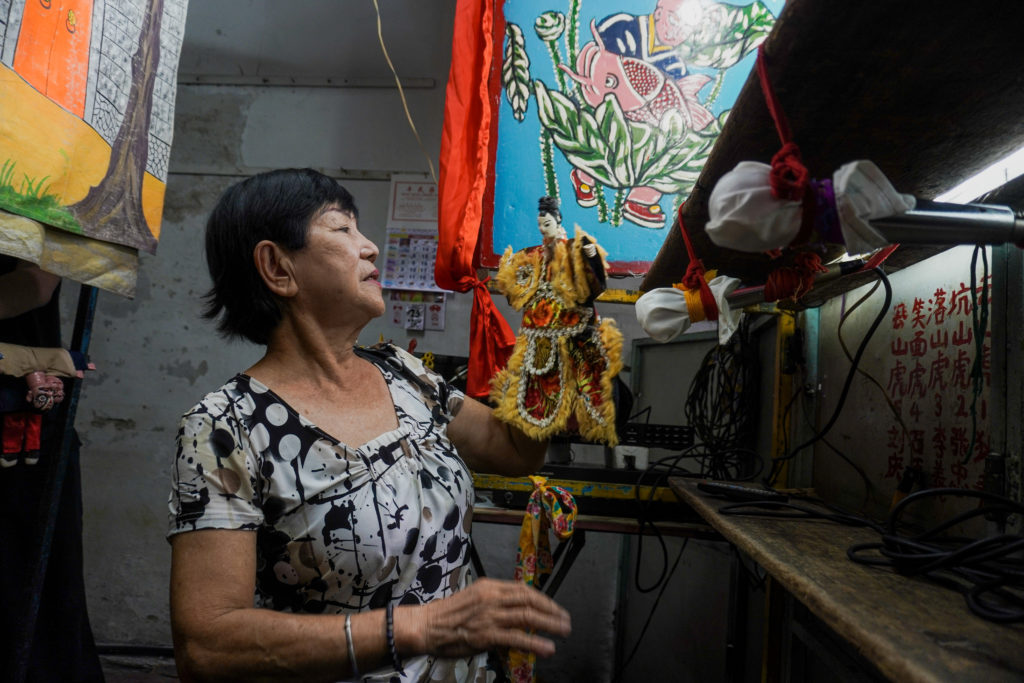
Potehi originates from Fujian, China, where records of performing troupes date back to the 18th century, although the art form is believed to be much older, perhaps even originating during the 16th century. Migrant workers who left China in the late 19th century brought the art form to Taiwan and Southeast Asia, including the ancestors of many Malaysian Chinese. As a thriving colonial port in British Malaya, Penang was among the entry points for the art form. In the 1940s, Potehi was a popular entertainment at temple festivities and funerals throughout Penang.
In the beginning, Ooi’s grandfather had to make do with simple sticks and cloth when performing. The troupe ordered puppet heads from China and crafted the bodies and costumes themselves. Nowadays, Ooi has a large repertoire of theatre equipment. The stage used for performances has served for around 60 years. They maintain their equipment themselves, fixing broken puppets, faded paint and frayed costumes.
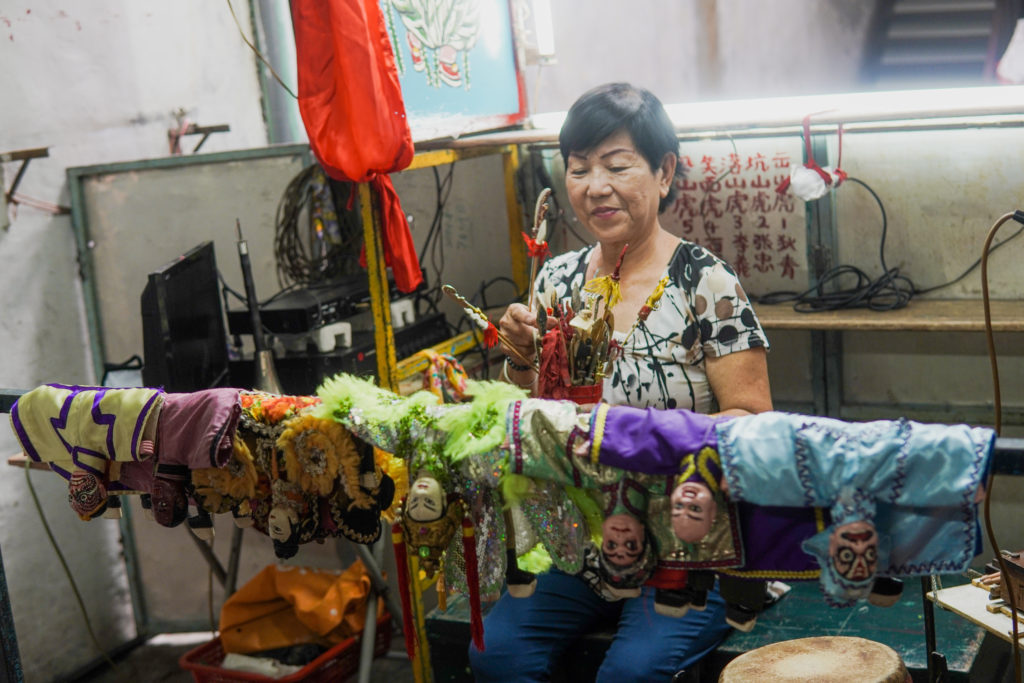
Her older sister learned the art first. “I started when I was around 12 or 13,” Ooi says. “My sister didn’t want to let me learn it at first. She said theatre performers would be looked down upon by others. At first, I started with minor roles such as the soldiers.” From then on, she learned to manipulate other puppets and the singing techniques as well. Learning is an ongoing process. While it was possible to learn how to perform relatively quickly, it takes up to ten years of constant practice and performance to become an expert.
Ooi now leads the Beng Geok Hong Potehi theatre troupe, which dates back to the 1930s and is often called upon to perform at temples during celebrations. Only four troupes survive today, including Sin Kim Hong, Guat Poh Hong, and Sing Hong Eng. The Beng Geok Hong Potehi troupe has been invited to Taiwan to perform as well.
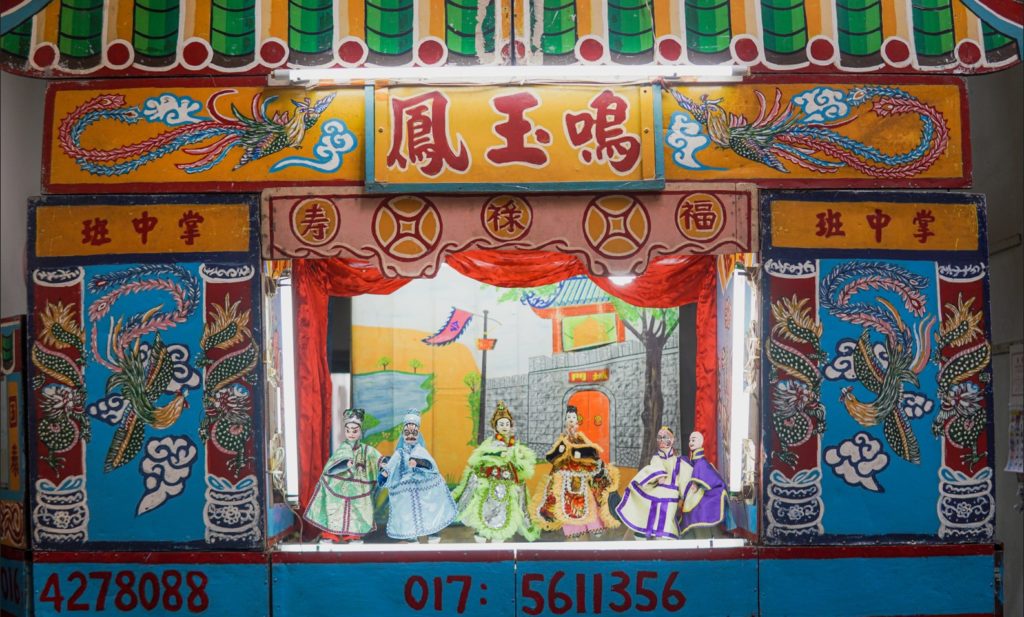
Potehi stories are adapted from traditional Chinese tales. Ooi knows over 100 stories. “The stories I perform are old,” Ooi says. “Some of them were told to me by my grandfather. Some of them are modified from books. We would write down important scenes, and improvise dialogue and actions. Many stories are about war. Some stories need to be performed across several days, several performances. Nowadays, the stories we perform depend on what gets requested. Some old, some new, some are funny stories, some are war stories. Even the duration of the story can be modified.”
Potehi, once so popular, is now quickly disappearing. Performing at temples is the last bastion for traditional performing arts like Potehi to earn a living. Even then, audience numbers are dwindling. “Sometimes, the old people listening at home can still hear us perform, even when they can no longer come out to watch us,” Ooi says, smiling. “They would sometimes comment on our performances and our mistakes afterwards.” Nevertheless, she feels that by passing down certain Potehi practices, the tradition will still be maintained.
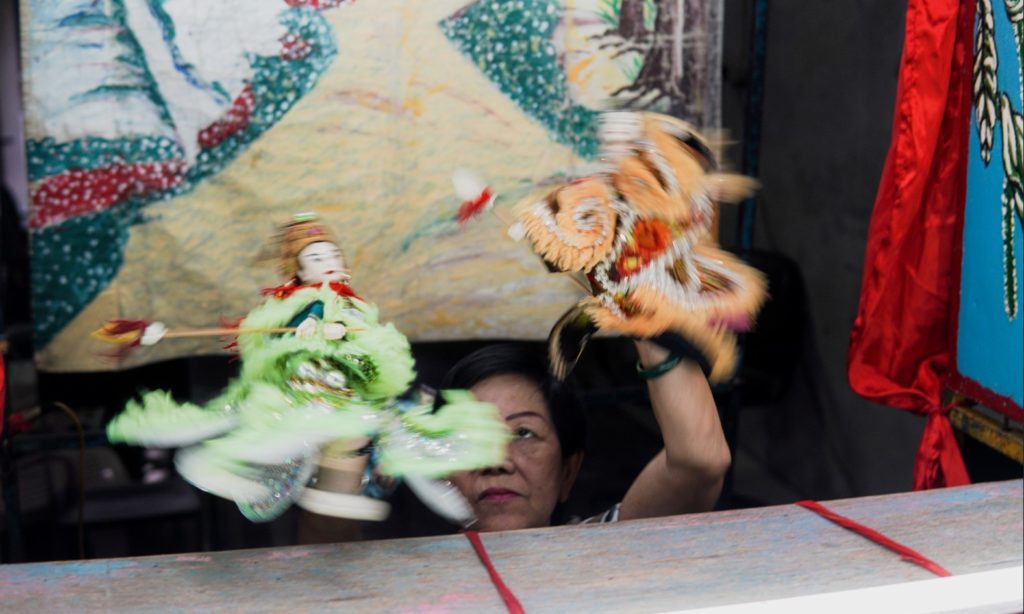
Ooi See Han is a recipient of CENDANA’s Adiguru grant, conducted in partnership with PUSAKA, for the art of Potehi puppetry.
To read more BASKL, click on the links below:

